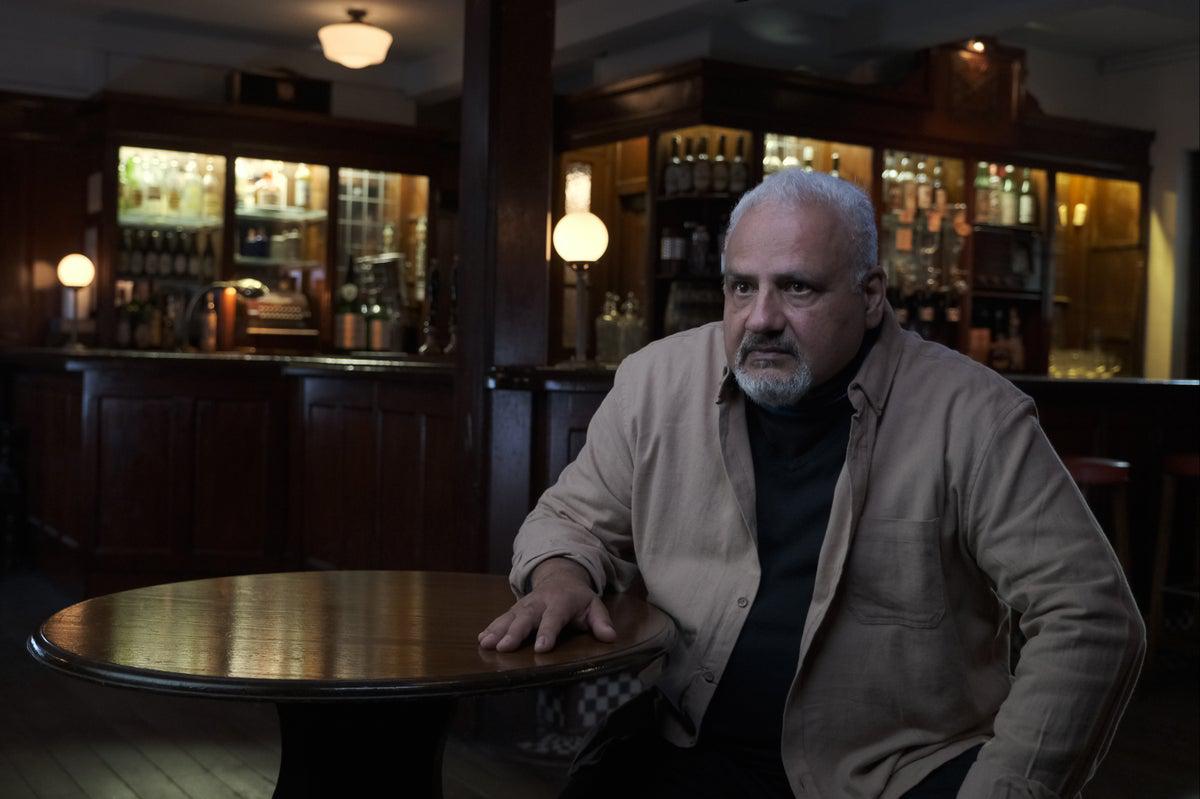The Fake Sheikh on Prime Video review: the rise and fall of the 90s’ most notorious tabloid journalist

If there’s one thing the British press and public adore more than a scandal, it’s a sense of irony. Seeing just desserts dished out upholds the belief that justice prevails in the end. Police officers behind bars, comedians becoming the butt of the joke, royals falling from grace, and journalists who wind up making the headlines instead of writing them.
Now, a new Prime Video documentary charts the rise and crushing fall of one of Britain’s most notorious undercover journalists in a three-part series – and it is juicy, juicy viewing. Back in the mid-Nineties and early Noughties, the now-defunct News of the World was home to award-winning investigative reporter Mazher Mahmood, who most people will now know as the Fake Sheikh.
Self-coined as “the King of the Sting” he ruled the tabloid press, dressing up in £10 market-bought Arab robes to trick the great, the grotesque and the plain greedy into believing he was a wealthy Middle Eastern aristocrat with the power to make their dreams come true.
The series features interviews with targets and former friends and colleagues, with reconstructions and front page scoops (and a heck of a lot of close-ups, particularly of his satisfied smirk) to build the tale of the undercover reporter who commanded the respect of Fleet Street before falling, spectacularly, from the height of a 30-year career.
It begins in Eighties Birmingham with a young Mahmood, a Pakistani writer keen to break free of the beat of Asian community and racism stories. This son of immigrants was hungry to prove himself and crack into the media elite; so much so that his first break came at the expense of family friends who were discussing dabbling in video piracy around the dinner table. Selling them out and risking family and community shunning, so early on, gives you a taste of the ruthlessness to follow.

When he arrived at the News of the World, owned by News International as it was then, his burning desire to impress editors led to the conjuring of the Fake Sheikh, a persona that would eventually eclipse the fame of his targets. The embryonic internet meant little was known about the wealthy Arabs who flew into London with wads of cash reaped from vast oil fields, and it was this mystery that Mahmood cloaked around himself.
While interviewees offer varying shades of grey to the man under the robes, they’re all unequivocal about one thing: Mazher played the part of the Sheikh to an Oscar-worthy level. His stings were meticulous, from hours of damning surveillance, to bags of Dubai duty-free strewn around swanky villas to convince his targets he’d just flown in from the Middle East. The devil, as they say, is in the detail.
Aided by a hand-picked team of photographers, informants and underworld contacts, his byline dominated front pages and his scoops on sports corruption, murderous doctors, and a plan to kidnap Posh Spice for ransom rippled across the mediascape, and was picked up by foreign press.
As he began to win praise and respect, first from his colleagues and editors, then Fleet Street’s top brass, the pressure for bigger, better, world-shattering scoops grew too. Was it this that saw him segue from investigative journalist to agent provocateur? Mahmood no longer merely captured wrongdoing, but began, like a Bond baddie, to manufacture it.
The News of the World became the biggest-selling Sunday paper in the UK, its circulation swollen by the Sheikh’s setups. Was this the reason bosses turned a blind eye to the extremes Mahmood began to use to get the story he wanted? The line “the end justifies the means” runs through the series.
Public attitudes to fame back then were different, too, with the notion that privacy was the payment for becoming a household name. Without social media, victims had no comeback - at least, not on their terms. All this created a toxic vortex that allowed the Sheikh, increasingly on the knife-edge of ethics and industry code, to thrive. Scotland Yard didn’t seem to care either; after all, his busts landed them easy prosecutions.

The only one with anything remotely nice to say is ex-girlfriend Zee, also the only person allowed to take his picture: “he was kind and generous; a family man and a loyal friend”. Try telling that to the people he shafted. Despite a five-year relationship, when she questioned a sting, just once, he kicked her to the curb. So much for loyalty.
The Tulisa Contostavlos sting was a flash point. Discarding the Sheikh’s robes – too infamous by now – he instead assumed the role of a Bollywood exec dangling a huge movie role for the ex N-Dubz singer, and later asking her to score cocaine for his personal use. When Tulisa eventually bit, the story hit the presses and another career was over.
It wasn’t looking good for the former X Factor judge – who is not interviewed in the documentary – until a miracle turned the tables and the reporter found his world crumbling as an Old Bailey jury found him guilty of tampering with evidence ahead of her collapsed 2014 drug trial. It’s said that this led to a flood of civil actions against News International that cost more than the phone-hacking scandal.
The series – “so unbelievable it has to be true” – leaves you with many churning questions, the biggest being: who was really to blame? As single-minded as he was, Mahmood didn’t operate alone. He had associates, he had editors, and he had a public who were ravenous for his stories. Was it early discrimination that powered his mercenary methods, or a need to prove himself? Was he addicted to the praise? Did he crave fresh bylines?
Mahmood did expose the greedy, the stupid, and the evil, but some of his setups took down hardworking folk just hoping to better their lives, like when he loaded a bus with illegal immigrants under the guise of offering them building work – and drove them to a detention centre instead. Not motivated by some journalistic crusade, but to impress News International head honcho Rupert Murdoch. In the end, the story wasn’t big enough and was buried in the middle of the paper.
And now? His former friends and colleagues speculate that he could be freelancing at another paper now, but no one knows for sure. Could he be behind some of the scoops making headline news today?
Prime Video’s The Fake Sheikh is a brilliant series; the three hours will fly by. What a shame they couldn’t secure an interview with the man himself. Now, that really would have been a scoop.
The Fake Sheikh is out on Prime Video from September 26






